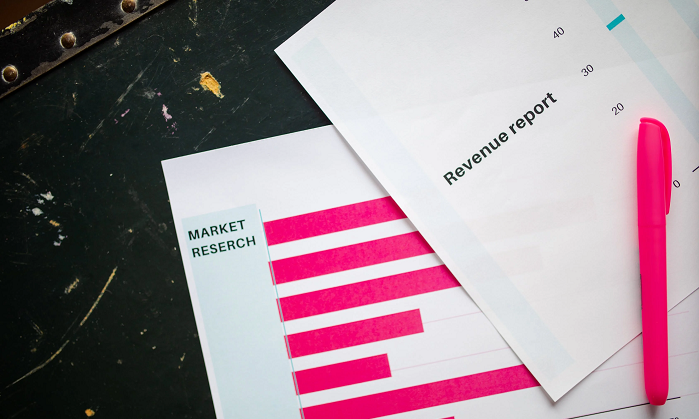How Is Data Analytics Used in Tourism?

Table of content
Big Data Analytics in Tourism
Three Types of Big Data Analytics in Tourism
Key Benefits of Big Data in Travel & Tourism
Big Data Challenges in the Tourism Industry
How Big Data Enhances Profitability in the Travel Industry
Conclusion
Big Data analytics in tourism
In the tourism industry, as with many other fields, big data plays a crucial role in making informed decisions. It is pivotal in areas such as forecasting customer demand, personalizing services, optimizing travel marketing, and refining pricing strategies.
Big data works best when combined with artificial intelligence (AI) and machine learning (ML), which enable analytics teams to automatically identify patterns within vast amounts of unstructured data. For instance, by using these technologies, tourism professionals can uncover which hotel features most influence guest satisfaction or predict, based on past travel behavior, which destinations a customer is likely to choose next.
Typically, big data is not an isolated technology; it relies on additional methods for effective storage, organization, and analysis. This integrated approach is what empowers tourism businesses to gain deeper insights into their customers and better anticipate their needs.
By harnessing big data analytics in tourism, businesses can significantly enhance their understanding of customer preferences and trends, leading to more tailored and successful strategies.
Three Types of Big Data Analytics in Tourism
Exploring the Three Types of Big Data Analytics in Tourism
1. Descriptive Analytics
Descriptive analytics delves into both current and past customer data to provide a clear picture of what has occurred. In the tourism industry, this type of analysis helps in understanding patterns and trends, which can be crucial for cost management and enhancing forecasting precision. For example, it can help identify opportunities for selling last-minute discounted tours or accurately predict sales figures, such as anticipating that 80% of sales will be at full price or 50% will be from early bookings.
2. Predictive Analytics
Predictive analytics leverages historical data to forecast future trends and patterns. Travel companies utilize this approach to predict which types of trips—be it educational, business, romantic, or wellness-oriented—will gain popularity in the upcoming season. By analyzing past trends, predictive analytics helps businesses anticipate which destinations and travel types will be in demand, allowing them to tailor their offerings accordingly.
3. Prescriptive Analytics
Prescriptive analytics goes a step further by not only predicting future trends but also recommending actionable strategies. This advanced form of analytics uses simulation scenarios to help travel companies devise the most effective business strategies. By analyzing various scenarios, prescriptive analytics provides insights into how to maximize profits and effectively engage customers, ensuring that businesses can make informed decisions to enhance their performance.
Key Benefits of Big Data in Travel & Tourism
As the travel industry continues to evolve, leveraging big data has become crucial for gaining a competitive edge. Here’s a look at how big data benefits travel companies:
Revenue Management Optimization : Tourism
Big data provides valuable insights into user behavior, allowing travel companies to refine their revenue management strategies. By analyzing both current and historical data, companies can better forecast revenues and manage costs. This enhanced accuracy helps predict occupancy rates more precisely, minimizing the risk of unexpected expenses and making profit margins more predictable.
Advanced Analytics for Better Predictions
Unlike traditional methods that rely solely on historical data, big data solutions incorporate both historical and real-time information. This dual approach enhances the ability to forecast changes in trends, even when they shift dramatically, as seen during events like the COVID-19 pandemic. By analyzing a broader range of data, travel companies can adapt more quickly to market fluctuations and emerging trends.
Improving Seasonal Management
Big data enables the rapid processing of extensive information about target audiences, which is essential for effective seasonal marketing and long-term planning. This capability allows companies to make informed decisions about new destinations and tour formats, rather than relying on guesswork. As a result, travel companies can better align their offerings with customer preferences and market demands.
Big Data Challenges in the Tourism Industry
As we explore the role of big data in the tourism industry, it’s important to address the challenges that come with its implementation.
Privacy and Security
The volume of data generated in the tourism sector is growing rapidly, often outpacing the capacity to collect, process, store, and analyze it effectively. Traditional IT security systems may not be equipped to handle this surge in data, making it crucial to invest in advanced solutions that can safeguard your analytics data.
Data Ownership In the tourism industry, much of the big data is sourced directly from users and their personal devices. It is essential to comply with data protection regulations like GDPR and HIPAA, ensuring that users have the ability to access, manage, and delete their personal information as needed.
Data Handling Data Handling real-time big data requires specialized technologies to avoid excessive resource consumption. Typically, this involves using machine learning and advanced analytics tools to efficiently process and make use of the data.
Data Storage For storing big data in the tourism sector, businesses often turn to public cloud services provided by major players like Amazon, Microsoft, and Google, or opt for private cloud solutions, particularly in the corporate realm. Storing large volumes of data can be costly, as it demands high-performance equipment and substantial investment.
How Big Data Enhances Profitability in the Travel Industry
Maximizing Revenue
Big data provides valuable insights into both current customer satisfaction and the expectations of potential future clients. By analyzing this data, businesses can more accurately forecast peak travel periods and adjust pricing strategies accordingly. This leads to optimized revenue through better understanding of demand patterns and alignment with market trends.
Enhancing Reputation
In today’s digital age, customer reviews and opinions are readily shared on social media platforms. It’s crucial for businesses to monitor and manage their online reputation actively. Reputation management tools can analyze the sentiment of customer feedback, providing a comprehensive view of public perception and helping businesses address any issues promptly.
Strategic Marketing
Big data encompasses a wealth of historical information that can be leveraged to forecast future trends and develop effective business strategies. To build these strategic models, companies often use advanced tools, including artificial intelligence, which help in predicting market movements and shaping future marketing plans.
Personalizing Customer Experience
Understanding customer preferences and predicting future needs is made easier with big data. By analyzing customer behavior and emerging travel trends, businesses can tailor their offerings to meet individual preferences, enhancing the overall customer experience and driving loyalty.
Conducting Market Research
Big data enables real-time collection of information about competitors and target audiences. This capability surpasses traditional methods by providing up-to-date insights that are crucial for making informed business decisions and staying competitive in the market.
Targeted Marketing Efforts
With a diverse customer base, creating a one-size-fits-all marketing strategy can be challenging. Big data helps by segmenting customers into specific groups based on various criteria. This segmentation allows for the development of targeted marketing strategies that address the unique needs and preferences of each group, improving customer engagement and retention.
Conclusion
Big data is revolutionizing the travel industry by providing actionable insights that drive profitability and enhance customer experiences. From optimizing revenue management and refining pricing strategies to personalizing services and improving market research, the applications of big data are vast and impactful. By leveraging advanced analytics, travel companies can better understand customer preferences, predict trends, and make informed decisions that align with market demands. However, it is crucial to address challenges related to privacy, data handling, and storage to fully realize the benefits of big data.
For more insights and to explore how big data can transform your travel business, visit: PangaeaX.
Get your data results fast and accelerate your business performance with the insights you need today.



